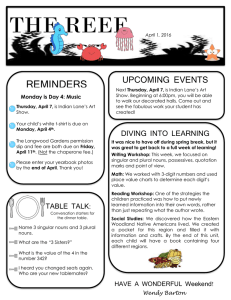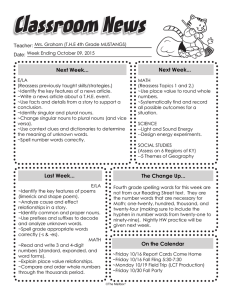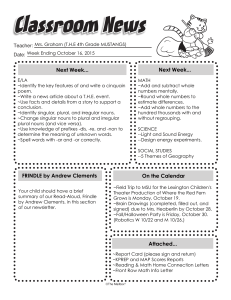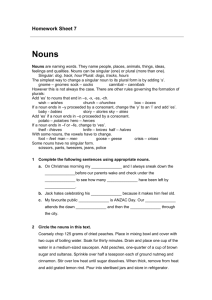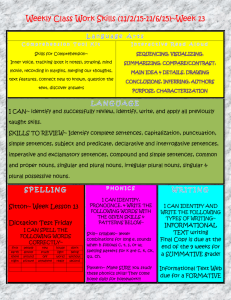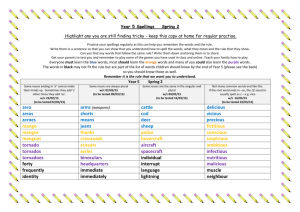Lesson 5 Student Skills to be Learned Vocabulary Strategies: Using
advertisement
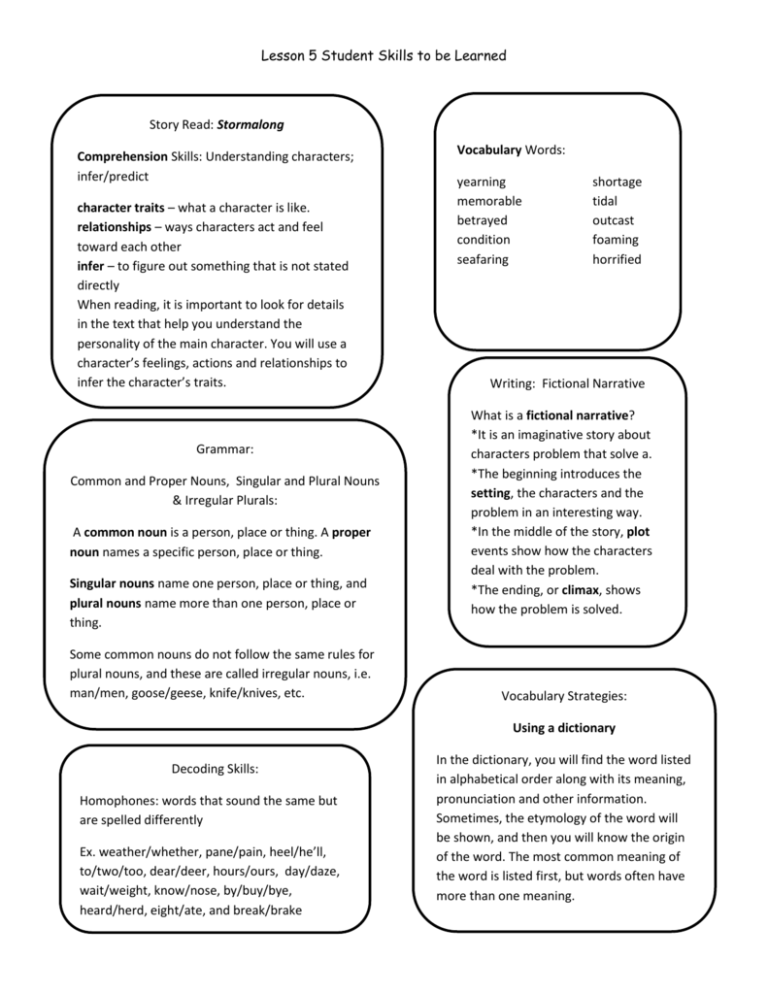
Lesson 5 Student Skills to be Learned Story Read: Stormalong Comprehension Skills: Understanding characters; infer/predict character traits – what a character is like. relationships – ways characters act and feel toward each other infer – to figure out something that is not stated directly When reading, it is important to look for details in the text that help you understand the personality of the main character. You will use a character’s feelings, actions and relationships to infer the character’s traits. Grammar: Common and Proper Nouns, Singular and Plural Nouns & Irregular Plurals: A common noun is a person, place or thing. A proper noun names a specific person, place or thing. Singular nouns name one person, place or thing, and plural nouns name more than one person, place or thing. Some common nouns do not follow the same rules for plural nouns, and these are called irregular nouns, i.e. man/men, goose/geese, knife/knives, etc. Vocabulary Words: yearning memorable betrayed condition seafaring shortage tidal outcast foaming horrified Writing: Fictional Narrative What is a fictional narrative? *It is an imaginative story about characters problem that solve a. *The beginning introduces the setting, the characters and the problem in an interesting way. *In the middle of the story, plot events show how the characters deal with the problem. *The ending, or climax, shows how the problem is solved. Vocabulary Strategies: Using a dictionary Decoding Skills: Homophones: words that sound the same but are spelled differently Ex. weather/whether, pane/pain, heel/he’ll, to/two/too, dear/deer, hours/ours, day/daze, wait/weight, know/nose, by/buy/bye, heard/herd, eight/ate, and break/brake In the dictionary, you will find the word listed in alphabetical order along with its meaning, pronunciation and other information. Sometimes, the etymology of the word will be shown, and then you will know the origin of the word. The most common meaning of the word is listed first, but words often have more than one meaning.
